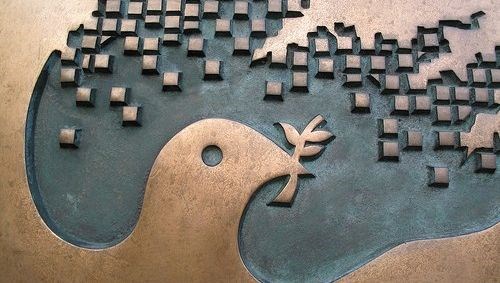Comment
Chicken Kiev

Photo: Andy Miah/Flickr
21.02.2014
Olympic consistency. The IOC's reaction to Norwegian athletes wearing black armbands at the beginning of the Olympics was not about mourning. It was about Ukraine.
When the IOC now refuses Ukrainian athletes - who mourn the killings in Ukraine - to wear armbands during competition in Sochi, it does certainly prove that they are consistent, but also that this is only about politics. Now Ukrainian athletes are going home in protest against the IOC’s lack of empathy. For some, armbands are a heavier burden than for others.
Power play
While the IOC rejects the Ukrainian Olympic Committee's wish to give their own athletes the opportunity to wear armbands in recognition of what is happening in Ukraine, the leader of the Ukrainian delegation, IOC member and former pole volter Sergei Bubka, asked for Ukraine to commit to the Olympic Truce.
However, Bubka did not ask the IOC to stand up for the Olympic Truce or for an Olympic reaction to the violence in Ukraine. Too close to the government in Ukraine? Too close to the Russian government? Too eager to compete for the IOC presidency at a later stage (he lost to Thomas Bach last year)? Who knows? The events in Ukraine and the reaction (or lack of reaction) of the IOC to the violence in Kiev makes it clear that the Olympic Truce is a bad joke – in two ways.
Paper-thin truce
Firstly, the Olympic Truce, which was supported by a record few UN countries last November (only 122 countries signed the resolution, for the London Olympics all 193 UN members signed), is not worth the paper it is written on.
UN and IOC clichés walk hand in hand in the resolution text. One fact is for sure: the resolution does not stop the killings in Kiev. The last time the Olympic Truce was broken, was during the opening ceremony of the Beijing Olympics in 2008 - when Russia and Georgia went to war. States simply do not care about what they committed to just three months ago. The Olympics cannot stop war.
No commitment
Secondly, the IOC and the rest of the Olympic family could have shown that they take their own truce seriously by protesting against what is happening in Ukraine (and Syria and Venezuela and so on): YOU ARE BREAKING THE TRUCE AND WE PROTEST! But this does not happen. Not only because the Charter state that Olympics is not about politics (or at least pretend not to be), but also because this is about Russia. A protest against the riots in Ukraine will also be a protest against Russia. In Russia. That is a no-go, even if the Charter had committed the IOC to protest against violations of the Truce. Even if the IOC portray themselves as helpless in this situation I think we should ask them the following question: Do you care?
Ignorance
In the debate about the Norwegian armbands, Norwegian arrogance was discussed. The Norwegians did not care about the rules in the Charter. Now we are talking about Olympic ignorance. By not addressing violations of the Truce, with reference to not mixing sports and politics, the IOC and the Olympic family clearly show the opposite: This is all about politics! More people should wear armbands these days!





